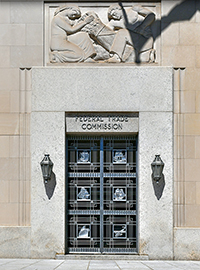| Biden FTC Wants to Rewrite Nation’s Employment Laws |
 |
|
By Timothy H. Lee
Thursday, January 12 2023 |
In recent years, we’ve suffered an intolerable expansion of the federal administrative state, ruled by unelected and unaccountable bureaucrats staffing them. Barack Obama illustrated the mentality behind that expansion in 2014, when he claimed authority to impose his agenda via “pen and phone” in disregard of our pesky democratic process: I’ve got a pen, and I’ve got a phone. And I can use that pen to sign executive orders and take executive actions and administrative actions that move the ball forward. Our Founding Fathers, however, didn’t create a constitution entitling one all-powerful executive to rule whenever he felt the urge to “move the ball forward.” Indeed, our Declaration of Independence specifically lists that among the Founders’ grievances against the king: He has erected a multitude of New Offices, and sent hither swarms of Officers to harass our people, and eat out their substance… For suspending our own Legislatures, and declaring themselves invested with power to legislate for us in all cases whatsoever… Heedless of those legal and constitutional constraints, the Biden Administration has simply picked up where the Obama Administration left off. For example, Biden has attempted to shift the cost of $400 billion in student loans from borrowers who actually agreed to repay them to the backs of taxpayers. His administration has also illegally attempted to unilaterally rewrite our nation’s immigration laws, prohibit landlords across the nation from evicting tenants who weren’t paying rent, redefine the employer-employee relationship via the National Labor Relations Board (NLRB) and use the abusive Consumer Financial Protection Bureau (CFPB) to use what it calls “dormant authority” to regulate non-banks as if they were banks. Fortunately, the judicial branch has shown less and less tolerance for executive branch administrative state abuses. That includes a 6-3 Supreme Court decision last year in West Virginia v. EPA overturning an Environmental Protection Agency (EPA) regulation attempting a wholesale remaking of our nation’s power grid via “green energy” mandates and subsidies. Taking direct aim at Obama’s infamous remark, Justice Neil Gorsuch added that, “The Constitution does not authorize agencies to use pen-and-phone regulations as substitutes for laws passed by the people’s representatives.” Accordingly, courts increasingly reject administrative agency claims of unilateral authority over issues of “vast economic and political significance” where Congress has not clearly empowered them with that claimed authority. Whether out of defiance or obtuseness, however, the Biden Administration refuses to internalize those accumulating correctives. In the latest example, Biden’s Federal Trade Commission (FTC) under hyper-activist Chair Lina Khan just proposed a new regulation prohibiting voluntary noncompete agreements, which the FTC itself acknowledges will affect an astounding 30 million workers. By any reasonable measure, that qualifies as an issue of “vast economic and political significance” as defined by the Supreme Court. Not only would the proposed rule supersede the laws of all 50 states that currently govern employment relationships, it would undermine employers’ rightful ability to protect intellectual property – patents, copyrights, trademarks and trade secrets – which largely account for America’s competitive advantage over the rest of the world in an increasingly competitive globalized economy. As for noncompete provisions themselves, they’re simply mutual agreements between employers and employees at the beginning of the employment relationship governing the degree to which the employee can compete directly or indirectly with the employer at the end of that relationship. For example, the agreement can stipulate that for a limited time and a limited geographical area, the departing employee won’t join a direct competitor, start up a competing company offering the same products or services, develop competing products or services or recruit colleagues to leave the employer to join them at a new competitor business. It's important to note that noncompete agreements thus serve important functions for businesses and intellectual property, rather than simply being something that simply restricts employee freedom without any legitimate business interest of employers. Noncompete agreements exist to protect such things as trade secrets, confidential information, client or customer relationships or specialized training. It's also important to emphasize that courts at the federal level and across all 50 states already scrutinize noncompete agreements closely, and refuse to enforce them when their provisions are unfair. So, for instance, courts won’t enforce provisions that don’t center on the employer’s legitimately sensitive business interests, that aren’t reasonable restricted in duration, that extend beyond a reasonable geographic location or are otherwise unfair to the employee. The FTC was created with the limited purpose of policing “unfair methods of competition,” and its enforcement is limited to such unfair practices. The fact that all 50 states choose to regulate noncompete agreements differently shows that they’re not inherently “unfair methods of competition,” and this blanket prohibition proposal is simply another Biden Administration effort to reorder America’s economy and society. Hopefully wiser heads at the FTC prevail and walk back this abusive proposal before it suffers defeat in the judicial branch after needless expense and waste of resources. |
Related Articles : |
























